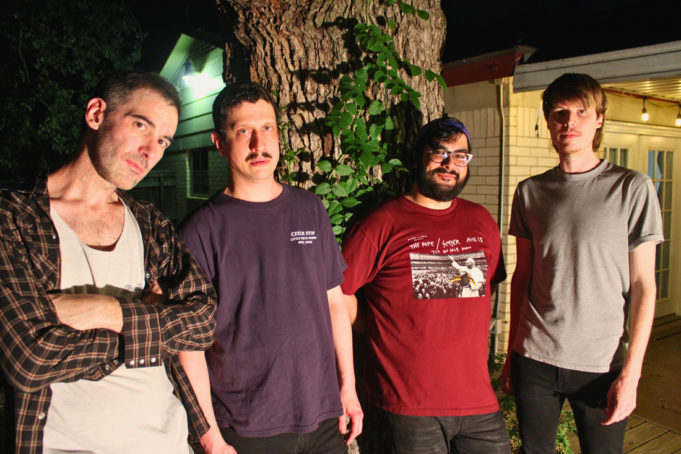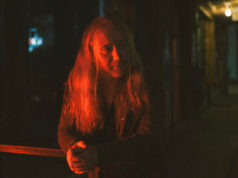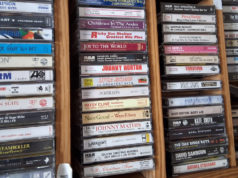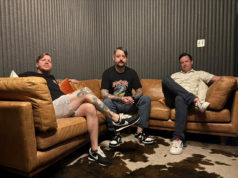One thing that is hard to understand if you’ve never been in a band is why, despite a litany of baked-in hassles — mental, physical, emotional, and financial are but a few — people keep at it. By “it,” I mean: writing songs, rehearsing songs, recording songs, booking and playing gigs, waiting until 2am to get paid, pocketing $25 for a five-hour expenditure of time, arguing about drum parts, compromising on solo lengths, dumbing it down, loosening it up, getting too drunk to drive, getting a $50 Uber and leaving your car full of stealable equipment parked behind a bar, walking to a Taco Bell at 4am, second-guessing thousands of opportunity costs, getting a slightly cheaper Uber the next day to get your car, flipping the calendar, tinnitus, watching the gray come in, and every other piece of that ridiculous sum of a lifestyle choice, one that is somehow greater than its parts. The personal investment you make to express yourself through rock ’n’ roll gets stupider the deeper you get. The ROI is bad. The benefits are meager, and the hours are terrible.
I think about this often, sometimes in awe, other times in chagrin. About halfway through Life in the Faust Lane, the debut album by local punks Joe Gorgeous, I just said out loud, not unkindly, “What is the point of this?”
At first, my answer was “screaming into the void.” But that’s not really correct. Joe Gorgeous is out here dropping their debut full-length at the ripe old band-age of 10. A decade-old band dropping their first album is kind of funny, but this first album has been in the works for about eight years, which is also kind of funny, except that for the members of Joe Gorgeous, those eight years were marred with deaths in their families, divorce, and stints in jail, and all of that before COVID. By the end of Faust Lane, I decided its point was this: You don’t need to scream into the void because merely existing is in direct defiance of it. And. Screaming into the void still feels pretty good.
Produced, mixed, and mastered by Jordan Richardson (Son of Stan, Quaker City Night Hawks) at Electric Barryland studios in Justin, Life in the Faust Lane’s nine tracks feel like you’re in a haunted house ride in the carnival that comes to the parking lot of a mall. They feel rickety and sarcastic, a black-lit devil leering at you before your cart twists and drives through his face into another room of UV light and yellow teeth. In general, the songs blast you with the twin axe attack of singer-guitarist Joey Gorman and lead guitarist Ricky Williford, with the psychedelic squiggle of Williford’s synth pulling your brain into soggy, can-I-get-out-now? territory. Drummer Noah Hall and bassist Matthew “Baggins” Gibbons build a lattice of frenetic beats and melodic attack, an electric net over which Gorman’s pop-punk sensibilities balance like a tightrope walker.
The songs are knotty with hooks, surprise movements, and odd-vocal phrasings that stretch over your brain like an unsettling dream, and if there’s another point to this album, it’s that life kind of feels like a bad dream. Some lines that struck me, even more so when taken out of context: “I don’t want to run forever / No, I think I’d rather fight” (“Born on Broadway”); “Waking up on the edge / Inside the nightmare between every single breath / Like a Faces of Death VHS that won’t eject” (“Vietnamese Coffee”); and “Paranoia is a poison / Love is the only antidote / Bad habits are still choices / And sanity is a joke” (“Born to Suffer”). The fatalism in these lyrics, the trapped-in-unreality imagery, the fist-pumping riffage born out of both classic-rock homage and the outrage and uncertainty that’s part of living in the here and now — I guess this record was supposed to come out in 2025, like that was its destiny. It made me feel anxious and sad, and I laughed out loud at some cool guitar licks and deadpan lines. Despite its lengthy gestation, Life in the Faust Lane feels like a piece of this era, when existing (because what else are you supposed to do?) seems like an increasingly radical act.
Still, one thing you can do while existing is make art, and when that’s your drive above all else — and I’d argue that that’s pretty much the point for Gorman, Williford, Hall, and Baggins — it doesn’t really matter that no one may ever hear it. Joe Gorgeous have taken a long time to make a really great record, but wherever you are, there you are, and put on some headphones the second time you listen to it. Listening to it in 2025 gives sufficient, ominous chills, but it’s also weirdly inspiring. However you remember this moment in your personal history — say, for example, while on either side of a mountain of existential dread — Life in the Faust Lane is a pretty good soundtrack. I guess that’s also the point.












